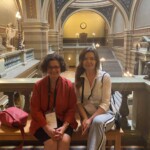
Questions, Objectives and Contributions
‘Beauty contests’ will contribute new knowledge on the ideational transformation of trade and investment policy and its implication for the redrawing of economic borders in contemporary Europe. It will also help specify the added-value of sociological approaches and methods for the study of EU policy regime formation, in particular by yielding new empirical and theoretical insights into the formation of business interests. Finally, it will contribute to the broader international discussion on the geopolitical turn in the EU.
The birth of the new EU investment screening policy regime is puzzling for several reasons:
- First, the EU investment screening regime complex emerged in the midst of a more restrictive economic context, where not only the EU but also the rest of the world, experienced growing difficulties in having access to FDI. Between 2015 and 2017, the total flows of FDI entering the EU dropped by 46%. Since then, the FDI squeeze has become even more acute owing to the Covid pandemic. By 2020, the FDI flows into the EU represented had dropped by 80% compared with 2015. Furthermore, the EU has been hit more harshly by shrinking FDI flows than the rest of the world.
We ask: How can we make sense of the adoption of restrictive FDI regulation in the EU in this constraining economic environment?
- Second, it is unclear why EU policy-makers rallied around the idea of establishing an EU investment screening mechanism in 2017. Foreign direct investment is a new area of supranational competence, following the entry into force of the Treaty of Lisbon in 2009. The member states transferred this area of competence only reluctantly to the EU. Following the entry into force of the Lisbon Treaty, the competence transfer gave rise to repeated litigation. The European Commission, as far as it is concerned, long seemed to resist attempts at regulating inward FDI.
We ask: Why, and under what conditions, did the member states and the European Commission eventually rally around the idea of establishing an EU investment screening mechanism?
- Third, the role of business actors in the emergence of this investment screening mechanisms remains underexplored and disputed. These actors are established in the EU policy-making process, and as the new policy regime potentially affects the activities of both local firms and foreign investors in significant ways, we would expect business actors to have been actively engaged. And yet, to date, we have very little systematic evidence and the evidence we have is inconclusive.
We ask: How were business actors involved in the coalitions shaping the establishment of the new investment screening regime and how can we account for their role?
This project pursues three objectives:
- Empirically, it aims to clarify the meanings of the EU’s emerging investment screening regime in light of evolving understandings of economic openness and security concerns.
- Theoretically, it seeks to conceptualize the processes of de- and re-territorialization shaping the development of this new investment screening regime complex.
- Methodologically, it seeks to advance the mobilities paradigm in the context of an important emerging EU policy regime.





